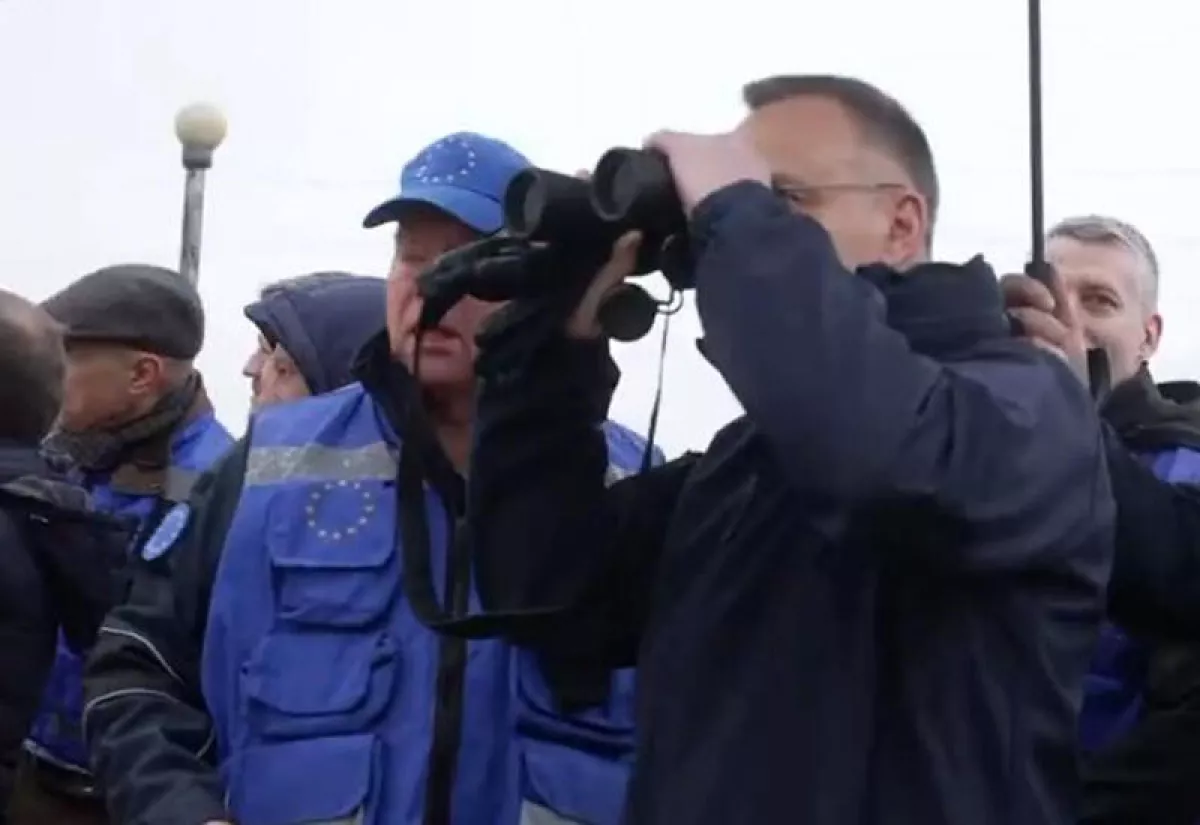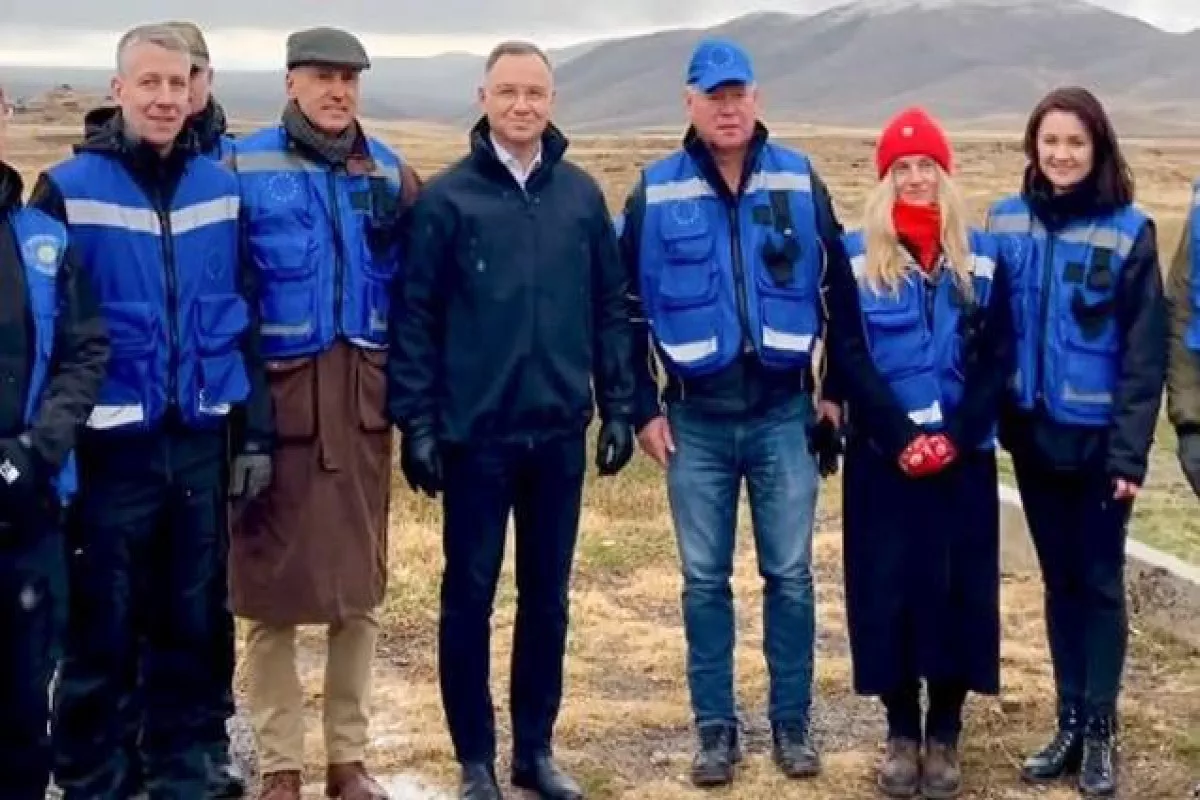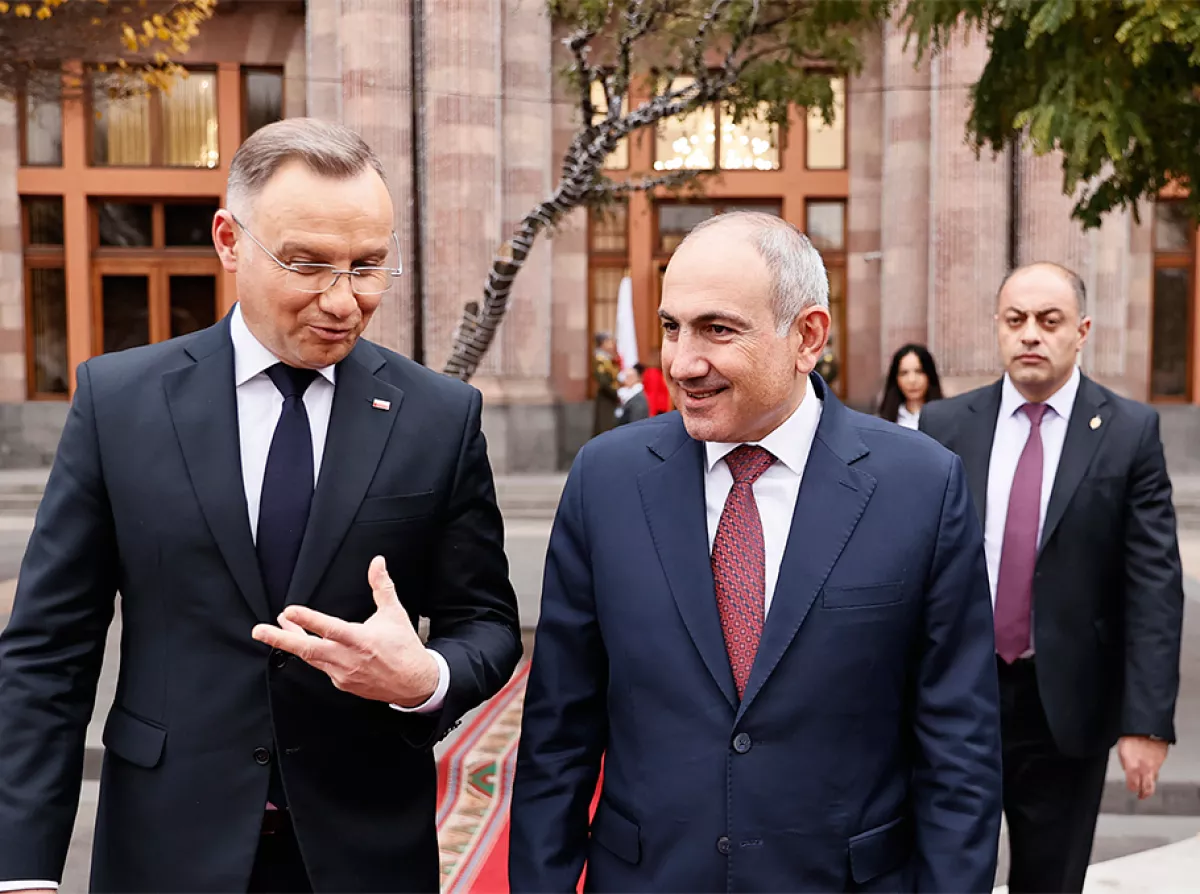Whose binoculars did Duda use in Armenia? Polish president’s anti-Azerbaijan provocation
Polish President Andrzej Duda seems to have made an astonishingly swift shift in tone. On November 12, he expressed heartfelt gratitude to Azerbaijani President Ilham Aliyev for the invitation to COP29, commending the event’s excellent organization. Speaking to journalists, Duda praised the "very good economic relations" between the two nations and expressed confidence in deepening collaboration "in other areas of bilateral cooperation as well."
Yet how credible is this commitment to deeper ties when, just two weeks later, during an official visit to Armenia, Duda made a provocative appearance at the so-called "observation post" of the EU's civilian mission? This anti-Azerbaijani structure, heavily staffed with operatives from various European intelligence agencies, hardly reflects the spirit of cooperation he promised in Baku.
One can’t help but wonder—what exactly was Mr Duda "monitoring" in the region, aligning himself with the so-called "binocular diplomats"? What was he looking for on Azerbaijani territory, which he had visited with great interest just two weeks before his trip to Yerevan?
Adding fuel to the fire, Armenian media eagerly reported that Duda actively participated in "patrolling" several areas, further raising questions about the true intentions behind his actions.

This raises a legitimate question: is this the same Andrzej Duda who, following Azerbaijani President Ilham Aliyev's official visit to Poland in 2017, expressed heartfelt gratitude for Baku’s support in electing Poland as a non-permanent member of the UN Security Council? That statement came against the backdrop of a Joint Declaration on Strategic Partnership and Economic Cooperation, which underscored the strong ties between the two nations.
It’s worth noting that during the same visit, Duda referenced President Aliyev’s 2008 trip to Poland, where Aliyev met with then-President Lech Kaczyński. Duda highlighted that it was during Kaczyński’s presidency that "ideas for energy cooperation" between the two nations first emerged. President Aliyev also paid tribute to Kaczyński, who tragically passed away, describing him as a friend of Azerbaijan and recalling how mutual visits during that time strengthened bilateral ties and facilitated various projects.
Aliyev even described the "new phase of Polish-Azerbaijani relations" as a "logical continuation of President Kaczyński’s era." Notably, Kaczyński was awarded Azerbaijan’s highest honour, the Heydar Aliyev Order, for his outstanding contributions to fostering friendship and cooperation between the two countries—a highly symbolic recognition of the legacy of mutual respect and partnership.
So, what has changed? How did Duda's current actions align with this long-standing spirit of cooperation?
Unfortunately, Andrzej Duda’s recent actions in Armenia bear no resemblance to Lech Kaczyński’s efforts to strengthen mutual understanding between Poland and Azerbaijan. While Duda, in his February congratulatory message to Ilham Aliyev on his re-election as president, expressed hope for the continued dynamic development of the longstanding friendship and productive cooperation between Baku and Warsaw, his "binocular diplomacy" in Armenia revealed an entirely different approach to maintaining the strategic partnership between the two nations. In fact, it could be said that these actions actively undermined it.
This shift was clearly reflected in a statement by Azerbaijan’s Ministry of Foreign Affairs, which condemned the Polish president’s participation in an unacceptable diplomatic “binocular show.” Such actions, the statement noted, exacerbate tensions in Azerbaijani-Polish relations rather than fostering collaboration. By taking this provocative step, Poland has regrettably chosen to disregard the principles of strategic partnership with Azerbaijan.

President Duda’s warm and courteous visit to Armenia raises numerous questions on various fronts. For instance, at COP29, he publicly refused to join the group photo because Belarusian President Alexander Lukashenko was included. Yet, for reasons known only to him, Duda made no similar attempt to distance himself from official contacts with Yerevan, whose trade turnover with Russia reached $7.4 billion in 2023, with projections to rise to $14-16 billion by the end of 2024.
Is Poland's president truly naive, not understanding that the West is creating conditions for Armenia to bypass anti-Russian sanctions, with Poland itself enthusiastically lobbying for this? Or, if he is not naive, does he intentionally turn a blind eye to the situation—if not actively approving it? One cannot explain Duda’s sudden warmth towards the Armenian side otherwise.

There is another important point that cannot be overlooked. During his press conference in Armenia, Andrzej Duda emphasized the importance of establishing peace and stability in the South Caucasus. But here arises a crucial question: how exactly does Duda plan to contribute to this cause with his anti-Azerbaijani actions? On the other hand, how can the President of Poland speak of peace and stability in the South Caucasus when his own country harbours territorial claims against Ukraine?
In May of this year, several media outlets noted a broadcast on Polish TV channel TVP1 that displayed a map of a "future Poland" which included territories in the western part of Ukraine, the territorial integrity of which Duda has repeatedly pledged to support in public statements. Just two days ago, other media outlets discussing a supposedly existing document, which allegedly outlines the potential division of Ukraine by external forces, quoted Polish Member of the European Parliament Grzegorz Braun, who called for Warsaw to "consider all scenarios without superstitious fears." One might ask: where is the repudiation of such rhetoric by Polish authorities?
In light of these developments, we can only hope that Duda realizes the damaging consequences of his anti-Azerbaijani actions. Especially given the Azerbaijani Ministry of Foreign Affairs' statement reaffirming Baku's right to take "due diplomatic measures against this unfriendly action."








